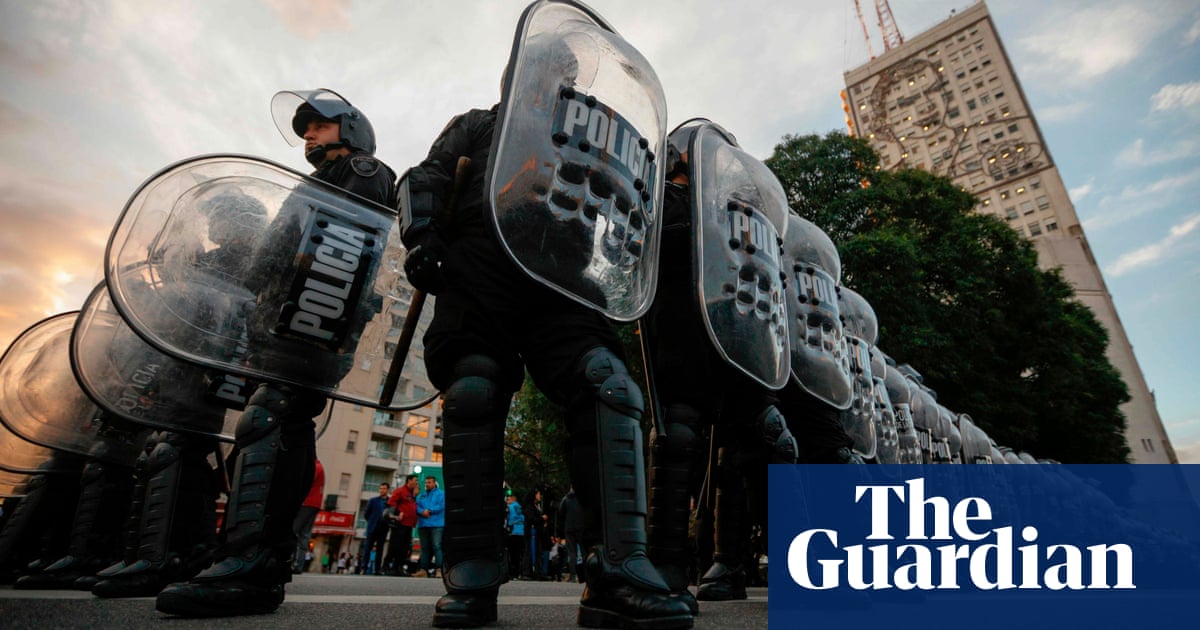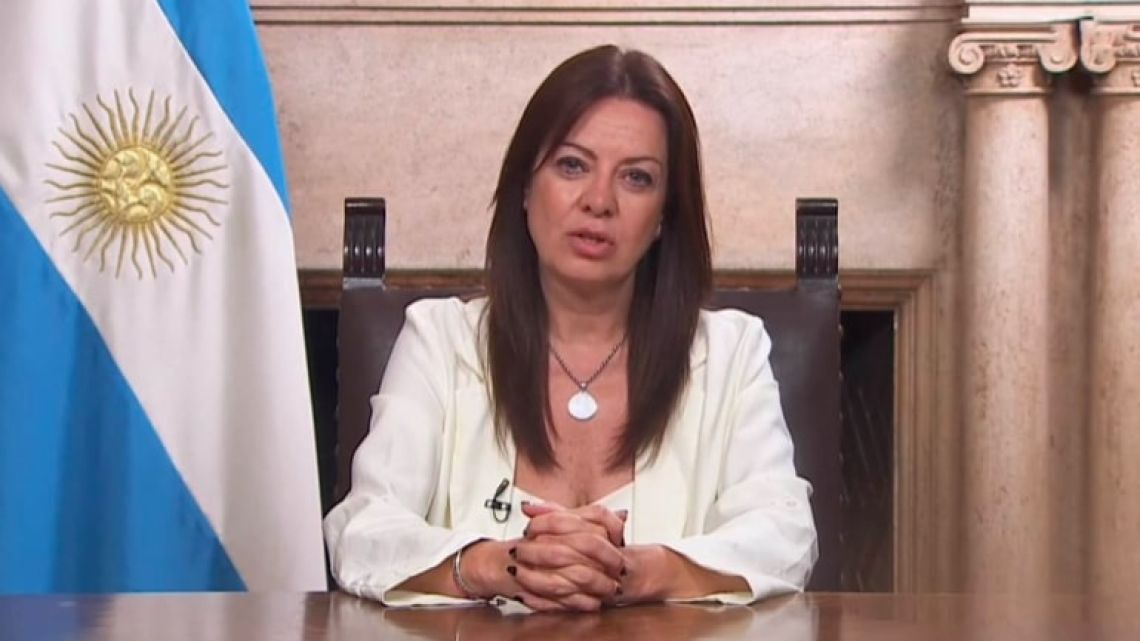
‘Prison or bullet’: new Argentina government promises harsh response to protest
President Javier Milei and his allies are preparing new security guidelines in anticipation of protests against currency devaluation
‘Prison or bullet’: new Argentina government promises harsh response to protest
President Javier Milei and his allies are preparing new security guidelines in anticipation of protests against currency devaluation
Uki Goñi in Buenos Aires
Sun 17 Dec 2023 06.00 EST
Human rights activists in Argentina have expressed consternation over new security guidelines to crack down on an anticipated wave of protests after the incoming government of libertarian president Javier Milei devalued the country’s currency by more than 50%.

Argentina’s new government devalues peso by more than 50%
Read more
Protesting individuals and organizations will be identified with “video, digital or manual means” – and then billed for the cost of sending security forces to police their demonstrations, said Milei’s security minister, Patricia Bullrich, as she announced the new protocol on Thursday.
“The state is not going to pay for the use of the security forces; organizations that have legal status will have to pay or individuals will have to bear the cost,” Bullrich said.
The aim of the new rules is to prevent a traditional form of protest known as piquete, in which demonstrators blockade city roads and highways for hours, days – and sometimes even weeks at a time.
“We have lived for many years under total and absolute disorder. It is time to put an end to this method, to the extortion suffered by citizens,” said Bullrich, who added that demonstrators could “protest on the pavement”.
Human rights groups and opposition legislators expressed concern at the rules which they said would essentially criminalise legitimate protests.
“Under the promise of order [the government] seeks to suppress public protest against the effects of official measures,” said the Centre of Legal Studies (CELS) in a statement. “The measures attack the right to protest and criminalize those who demonstrate and persecute social and political organizations.”
Leftist legislator and former presidential candidate Myriam Bregman said on X (formerly Twitter): “What Bullrich announced is absolutely unconstitutional … The right to protest is the first of all rights.”
José Luis Espert, a legislator with Milei’s party, Liberty Advances, replied with a three-word phrase: “Prison or bullet.”
The new protocol empowers police at train and bus stations to seize face masks, sticks or other elements they consider could be used in a demonstration. It also limits the participation of teenagers in social protests, ruling that parents of youngsters who should have been at school instead of protesting will be sanctioned.
“Bullrich announced that the government will punish the participation of girls, boys and adolescents in the protests. In this way, it criminalizes mothers and fathers who demand better conditions for their families and excludes those in charge of their care,” said the CELS in its statement.
Television newscaster Mario Massaccesi of the TN news channel recalled that Bullrich herself blockaded downtown streets in Buenos Aires when protesting against Covid lockdowns. “What authority does she have now to tell others they can’t protest?” asked the newscaster.
Protests are expected in response to the massive wage cuts and transport and tariff hikes announced as part of Milei’s “chainsaw” economic programme.
Inflation, which had peaked at about 160% during the last days of the previous government of Peronist Alberto Fernández, has skyrocketed into hyperinflation in the first week of Milei’s libertarian administration.
“Today inflation is travelling at a daily rate of 1%, that means it is travelling at a yearly rate of 3,678%,” Milei said on his Instagram feed on Friday.






